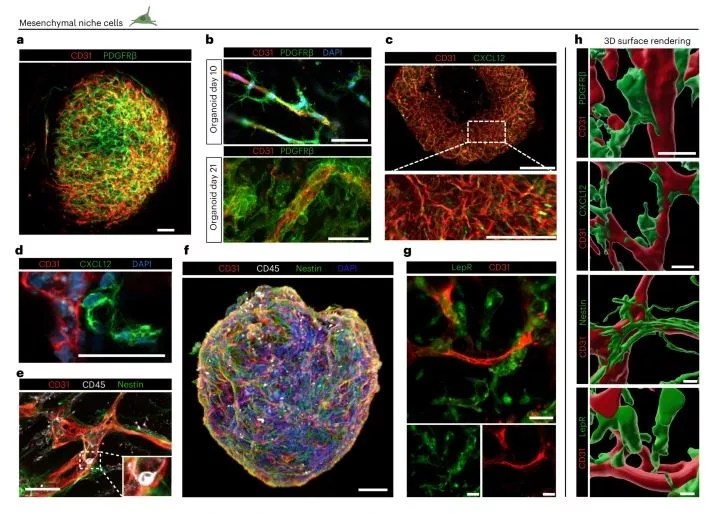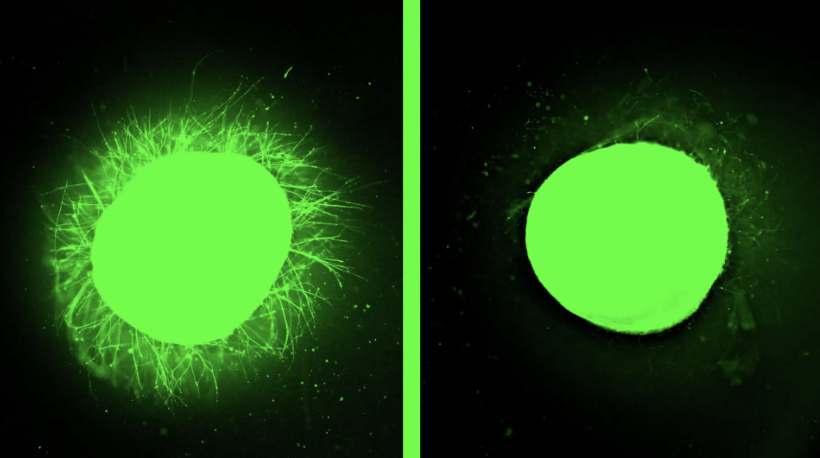The study introduces a novel method for creating three-dimensional organoids resembling the human bone marrow (BMOs) using induced pluripotent stem cells (iPSCs). These BMOs accurately replicate the cellular, structural, and molecular characteristics of the hematopoietic microenvironment found in the bone marrow. Noteworthy features include an in vivo-like vascular network, multipotent mesenchymal stem/progenitor cells, support for neutrophil differentiation, and responsiveness to inflammatory stimuli. Single-cell RNA sequencing reveals a diverse cellular composition, including a hematopoietic stem/progenitor cell cluster expressing genes typical of fetal hematopoietic stem cells. BMO-derived hematopoietic stem/progenitor cells demonstrate lymphoid potential and transient engraftment capacity in mouse xenotransplantation. The BMOs prove valuable for modeling hematopoietic developmental processes and studying genetic disorders, as demonstrated with VPS45 deficiency. In summary, iPSC-derived BMOs offer a physiologically relevant in vitro model of the human bone marrow microenvironment for investigating hematopoietic development and related diseases.
Keywords: Organoids, bone marrow, iPSC




